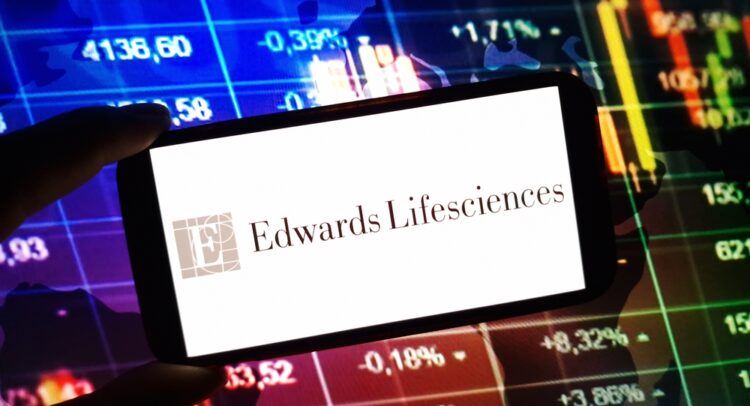A class action lawsuit was filed against Edwards Lifesciences Corp. (EW) by Levi & Korsinsky on October 14, 2024. The plaintiffs (shareholders) alleged that they bought EW stock at artificially inflated prices between February 6, 2024, and July 24, 2024 (Class Period) and are now seeking compensation for their financial losses. Investors who bought Edwards Lifesciences stock during that period can click here to learn about joining the lawsuit.
Discover the Best Stocks and Maximize Your Portfolio:
- See what stocks are receiving strong buy ratings from top-rated analysts.
- Filter, analyze, and streamline your search for investment opportunities with TipRanks’ Stock Screener.
Edward Lifesciences is a medical technology company with a focus on researching and developing medical innovations for structural heart disease, critical care, and surgical monitoring. EW’s products include a range of artificial heart valve technologies and hemodynamic monitoring.
The company’s claims about the performance and expectations from its transcatheter aortic valve replacement (TAVR) segment are at the crux of the current complaint.
Edwards Lifesciences’ Misleading Claims
According to the lawsuit, Edwards Lifesciences and three of its top executives (Individual Defendants) repeatedly made false and misleading public statements throughout the Class Period. Particularly, they are accused of omitting truthful information about TAVR and ancillary issues from SEC filings and related material.
For instance, during the Class Period, the company claimed in a press release that the global quarterly sales from the TAVR platform were $979 million, up 13% year-over-year. Furthermore, the company stated that it was fully confident of TAVR’s future potential owing to is patient-centric focus and lifetime management for aortic stenosis patients. Also, the company was confident about greater adoption of TAVR and advances in new technology such as RESILIA tissue.
Additionally, during an earnings call dated April 25, 2024, the CEO mentioned that the company was happy with TAVR’s performance. The company’s SAPIEN 3 Ultra RESILIA technology made up a majority of its U.S. sales.
Moreover, during a Jefferies 2024 Global Healthcare Conference, held on June 5, 2024, the company’s CFO noted that TAVR was offered in over 60 countries and had significant growth potential in the rest of the world in 2024 and 2025.
However, subsequent events (discussed below) revealed that Edwards Lifesciences allegedly misled investors about the growth potential of its TAVR platform.
Plaintiffs’ Arguments
The plaintiffs maintain that the Defendants deceived investors by lying and withholding critical information about the company’s business and prospects during the Class Period. Importantly, the Defendants are accused of misleading investors about the current and future expectations of its TAVR platform.
The information became clear on July 24, 2024, when EW released weaker-than-expected sales for Q2 FY24. What’s worse, the company even slashed its revenue forecast from the TAVR platform for Fiscal 2024. Sales from TAVR are now expected to grow between 5% and 7% year-over-year, down from 8% to 10% guided earlier.
According to Edwards Lifesciences, the lowered TAVR projections were due to “continued growth and expansion of structural heart therapies,” which affected hospital workflows. Following the news, EW stock received strong backlash from investors and analysts, dragging down the stock by 31.3% on July 25.
To conclude, Edwards Lifesciences allegedly misled investors about the growth potential and adoption of its TAVR platform. In the past six months, EW shares have declined 17.7%, causing notable damage to shareholder returns.










